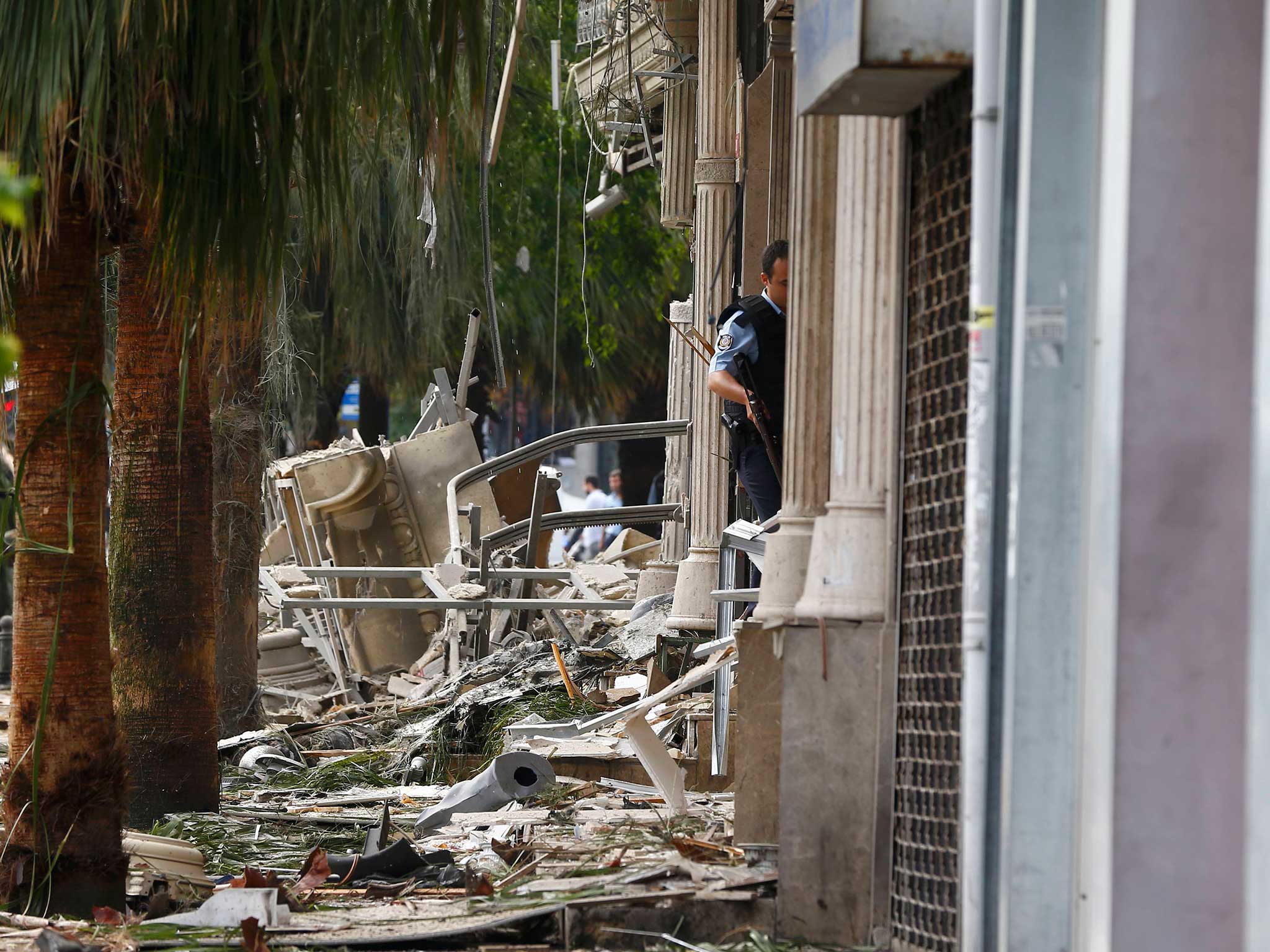Istanbul bomb attack: At least 11 people killed in blast 'targeting police bus' during rush hour in Turkey
There was no immediate claim of responsibility for the explosion
Your support helps us to tell the story
From reproductive rights to climate change to Big Tech, The Independent is on the ground when the story is developing. Whether it's investigating the financials of Elon Musk's pro-Trump PAC or producing our latest documentary, 'The A Word', which shines a light on the American women fighting for reproductive rights, we know how important it is to parse out the facts from the messaging.
At such a critical moment in US history, we need reporters on the ground. Your donation allows us to keep sending journalists to speak to both sides of the story.
The Independent is trusted by Americans across the entire political spectrum. And unlike many other quality news outlets, we choose not to lock Americans out of our reporting and analysis with paywalls. We believe quality journalism should be available to everyone, paid for by those who can afford it.
Your support makes all the difference.Turkey's President has vowed to fight against terrorism "until the end" after at least 11 people were killed in a car bomb attack in central Istanbul.
Recep Tayyip Erdogan said the atrocity, which was the latest in a series of bombings in the country's largest city, "cannot be pardoned or forgiven".
A bus carrying Turkish police officers appeared to be the target of the blast, which struck during Tuesday morning's rush hour in the historic Beyazit Square district near Istanbul University and tourist sites.
The governor of Istanbul, Vasip Şahin, said seven police officers and four civilians were killed, with 36 others wounded. There were fears the death toll could rise as three people remained in a critical condition.

A parked car packed with explosives was detonated using a remote control as the police bus passed, local reports said. The charred wreck of a partially destroyed vehicle could be seen next to the bus, which was flipped upside down by the force of the explosion.
The blast also damaged nearby buildings, blowing out windows, reducing frontages to rubble and leaving debris strewn across the road. The windows at a famous 16th-century Ottoman mosque, Sehzadebasi, also shattered.
“There was a loud bang, we thought it was lightning but right at that second the windows of the shop came down. It was extremely scary,” Cevher, a shopkeeper whose business was damaged, told Reuters.
Four suspects were arrested hours after the attack and were being questioned by police on suspicion of hiring the car used to carry the explosives.
President Erdogan described the attack on officers whose jobs were to protect others as “unforgivable”.
“These cannot be pardoned or forgiven - we will continue our fight against these terrorists until the end, tirelessly and fearlessly,” he told reporters after visiting some of the injured victims in hospital.
Philip Hammond, the Foreign Secretary, said his thoughts were with the victims. "The UK utterly condemns this senseless and appalling act of violence," he added.
John Bass, the American ambassador to Turkey, called the bombing “heinous” and said the US stood “shoulder to shoulder” with Turkey.
"Deeply saddened by the barbarous terror attack in Istanbul," he said in a statement. "Such senseless violence could never be rationalised by any cause."
A spokesperson for the European Union expressed "solidarity" with Turkey as negotiations continue over concessions including possible visa-free travel as part of March's landmark refugee deal.

Mevlut Cavusoglu, the Turkish foreign minister, also condemned the attack, which occurred on the second day of the holy Muslim month of Ramadan.
“They are cold-heartedly exploding bombs on a Ramadan day,” he said in a television interview.
The Prime Minister, Binali Yildirim, promised a full investigation to expose who was behind the atrocity.
There was no immediate claim of responsibility. Isis, Kurdish militant groups and left-wing extremists have recently orchestrated attacks in Turkey.
Suspicions were turning to the banned Kurdistan Workers Party (PKK), which claimed responsibility for a car bomb attack in Istanbul that wounded seven people last month. A parked car was blown up as a bus carrying security force personnel passed by.
The PKK, which has waged an armed insurgency against the Turkish state since 1984, frequently targets passing police and military vehicles with remote-controlled car bombs in south-eastern Turkey.

Attacks have mounted as the Syrian civil war continues over the border and Turkish security forces continue operations in Kurdish areas of the country's south-east.
The country is part of the US-led coalition against Isis and allows international fighter jets to use an air base at Incirlik to launch raids.
Last month, two police officers were killed in a suspected Isis bombing at Gaziantep's police station and a suicide attack claimed by the Kurdistan Freedom Falcons (TAK) hit near a mosque in the city of Bursa in April.
Tuesday's attack was the fourth major bombing in Istanbul this year. Two of them targeting tourists and two hitting security forces. The spike in violence has led to a sharp dip in tourism, a mainstay of the economy.
One such attack involved an Isis suicide bomber targeting tourists on Istanbul's Istiklal Street on 19 March, six days after a TAK-claimed blast in central Ankara killed more than 30 people.
The violence has sparked several travel warnings by the US, UK and European nations cautioning that further attacks were likely.
The British Government's travel advice warns that attacks could be indiscriminate and "affect places visited by foreigners".

Join our commenting forum
Join thought-provoking conversations, follow other Independent readers and see their replies
Comments